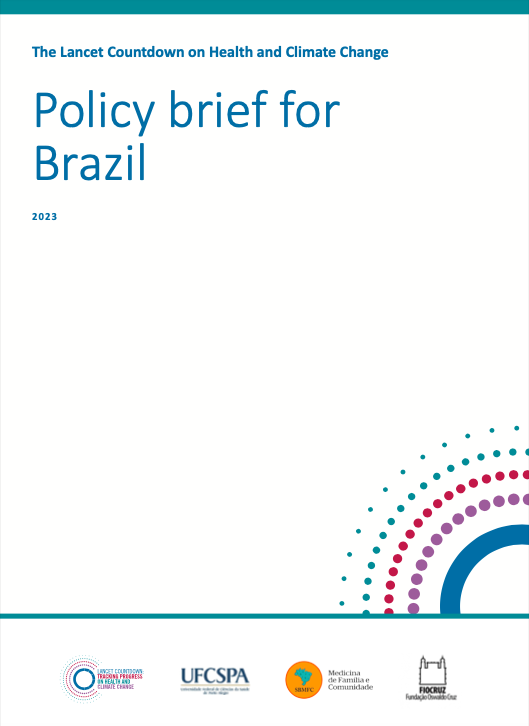Recomendações para Políticas de Saúde no Brasil
Lancet Countdown, IEA-USP, SBMFC & FIOCRUZ, 2023

So far, 2023 has been a year of meteorological extremes in the world and Brazil has not been the exception. Notable events include the historic winter heatwave that affected an extensive part of the country,1,2 the catastrophic floods in Rio Grande do Sul,3 and record-breaking droughts and wildfires in the Amazon region.4,5 These extreme weather events have impacted people’s health and wellbeing not only by increased exposure to high temperatures and air pollution, but also by destroying households, livelihoods, and healthcare facilities. These events demonstrate some of the impacts of climate change on human health and elucidate why climate change is the greatest global health threat of the 21st century.6
Até o momento, 2023 tem sido um ano de eventos climáticos extremos no mundo e o Brasil não tem sido exceção. Entre os eventos mais marcantes estão a histórica onda de calor no inverno que afetou uma grande parte do país1,2, as enchentes catastróficas no Rio Grande do Sul3 e as secas e incêndios florestais recordes na região amazônica4,5. Esses extremos meteorológicos afetaram a saúde e o bem-estar das pessoas não apenas pelo aumento da exposição a altas temperaturas e à poluição do ar, mas também pela destruição de residências, meios de subsistência e serviços de saúde. Para além dos acontecimentos, esse panorama revela que, as mudanças climáticas tem sido considerada a maior ameaça global à saúde do século XXI6.



